May 22, 2025 | 18:30 GMT +7
May 22, 2025 | 18:30 GMT +7
Hotline: 0913.378.918
May 22, 2025 | 18:30 GMT +7
Hotline: 0913.378.918
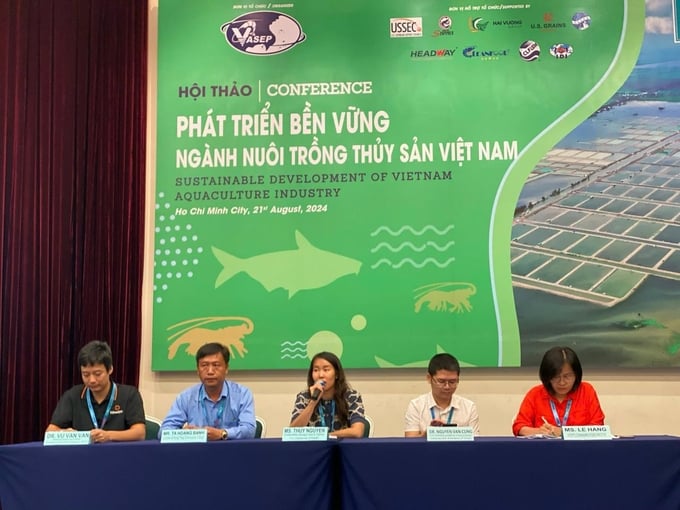
Ms Nguyen Thu Thuy (Emily), the Sustainable Development Director of De Heus Vietnam and Asia shared the Group's commitment to responsible aquaculture activities.
Ms Nguyen Thu Thuy (Emily) gave her intriguing sharing at the Vietnam International Fisheries Exhibition (Vietfish) 2024
Ms. Thuy emphasized the company's commitment to responsible aquaculture, highlighting the importance of long-term collaboration with farmers, industry stakeholders, and local communities.
At Vietfish 2024, Ms Thuy expressed her honour in sharing De Heus's efforts in building a sustainable aquaculture industry. She also extended her gratitude to the Vietnam Association of Seafood Processing and Exporting (VASEP) for the opportunity to participate in this significant event.
De Heus Vietnam began its aquaculture journey in 2011 in Vinh Long. Since then, De Heus Vietnam has expanded its presence across Vietnam, Asia, and Africa. Today, De Heus Vietnam proudly leads globally in the pangasius sector and ranks first nationally in marine and freshwater fish. The company's high-quality feed products also support native species such as tilapia, snakehead fish, and frogs, providing local farmers with access to high-quality nutrition and improving farming productivity.

Ms. Thuy affirmed, “The success of De Heus Vietnam is determined by the success of the farmers.” Therefore, with the mission of supporting farmers and developing a sustainable aquaculture industry, which is central to De Heus Group's business, the company must take more actions beyond just producing high-quality feed.
Since 2011, De Heus Vietnam has made significant investments in aquaculture. With six aquaculture feed production plants and a globally recognized Research and Development Center for Aquaculture in Vietnam, the nutritional solutions are continuously being refined.
De Heus Vietnam’s facilities adhere to the highest standards, including Global GAP, BAP, and ISO 22,000, meeting the export requirements of many esteemed customers and partners. Although many aquaculture customers are located in remote areas, De Heus Vietnam strives to provide on-site support services to deliver appropriate solutions and advice.
Additionally, a popular service among customers is De Heus Vietnam's mobile laboratory, which helps farms accurately diagnose health issues or diseases in livestock, allowing for timely prevention and treatment.
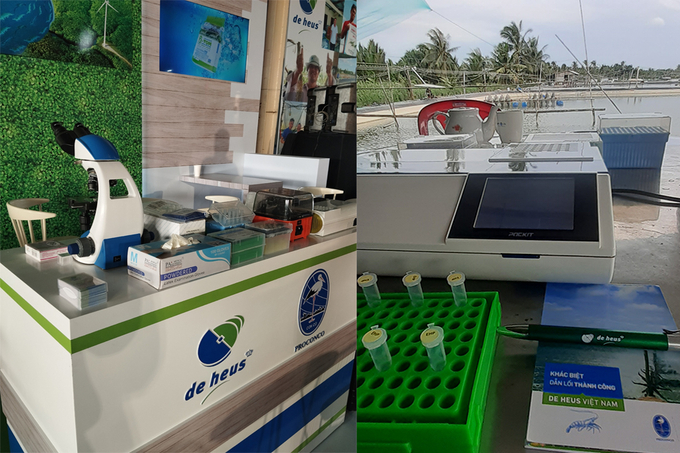
Mobile laboratory of De Heus Vietnam
The journey towards sustainable aquaculture begins with shaping De Heus Vietnam’s priorities based on areas where the company can make the greatest impact. For this reason, with De Heus's “Responsible Feeding” program, each business unit can develop programs that contribute to global goals while being tailored to meet the needs of each country.
With this approach, De Heus Group is proud of the leading initiatives that have been developed and integrated into De Heus Vietnam’s business operations. For example, the company is committed to installing solar panels at all 30 of De Heus Vietnam's facilities nationwide to support the goal of reducing greenhouse gas emissions in the supply chain and feed production operations.
Through bulk delivery solutions and silos, feed can be delivered to customers' farms without the need for plastic packaging, both overland and via waterways.
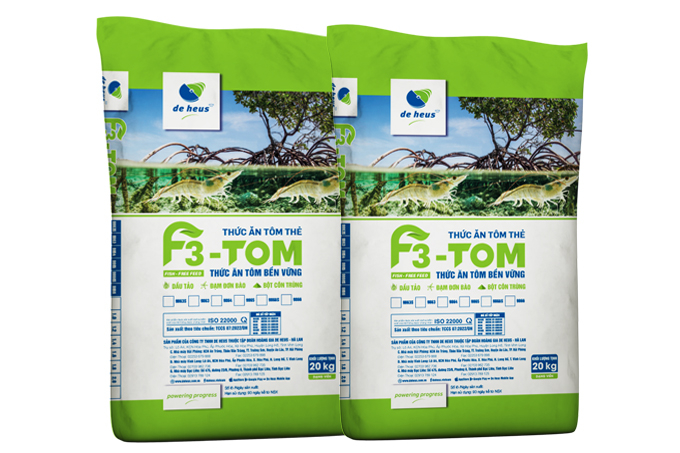
F3-Tom feed product from De Heus Vietnam
De Heus Vietnam aims to use socially and environmentally responsible ingredients, such as soy flour sourced from non-deforestation areas. The company is also willing to experiment with new ingredients that help reduce climate impact and conserve biodiversity.
Notably, after extensive research and trials, De Heus Vietnam launched the F3-Tom feed product in 2023, which stands for “Fish-Free-Feed” for shrimp. This innovative product utilizes insect flour and algal oil to replace traditional amino acids derived from fish ingredients.
Additionally, antibiotic resistance is a challenge that De Heus Vietnam is committed to addressing globally. By promoting the responsible use of antibiotics, improving water quality and biosecurity on farms, and employing vaccines or alternative methods to protect animal health, De Heus Vietnam provides tools to help farmers use antibiotics judiciously while achieving optimal effectiveness and desired business outcomes.
Supporting local communities
As a family-owned company, De Heus Vietnam believes in supporting local communities. This includes addressing long-term challenges such as adapting to salinity issues and providing emergency relief during crises, such as distributing essential goods to affected areas. For De Heus Vietnam, the local community is also part of their extended family.
“Aquaculture provides a sustainable protein source for us; however, much work remains to improve global awareness of Vietnam’s seafood products. By working together, we can build a more sustainable aquaculture industry, enhance efficiency, and deliver better solutions for farmers. Together, let’s continue to drive improvement and elevate industry standards to an international level,” concluded Ms Nguyen Thu Thuy (Emily), Sustainable Development Director of De Heus Vietnam and Asia.
Translated by Hoang Duy
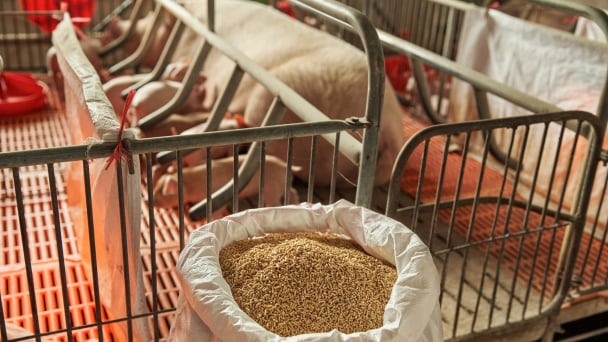
(VAN) CJ Feed&Care officially launched the FCR improvement campaign called “2025 Find Challenge Reach” in April 2025. In Vietnam, this campaign is implemented by CJ Vina Agri.
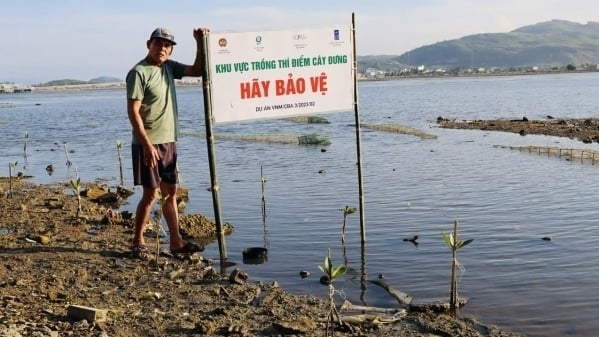
(VAN) The swamp in Pho Thanh is gradually being covered with red mangrove, creating a favorable environment for producing clean, high-quality salt.
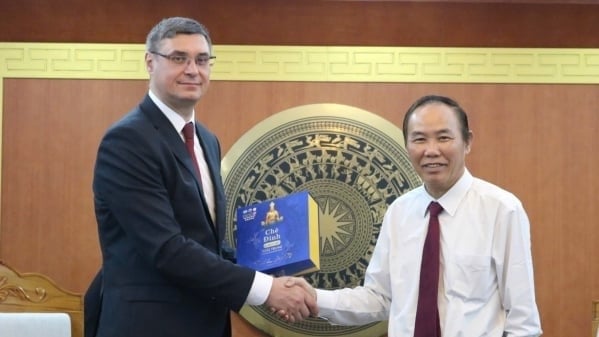
(VAN) The trade turnover of agro-forestry-fishery products is growing significantly, along with investment cooperation commitments that are opening up new development directions between Vietnam and Russia.

(VAN) Khanh Hoa is investing over 545 billion VND to develop 240 hectares of high-tech marine aquaculture in order to guarantee a consistent supply of seafood exports and achieve the USD 1 billion target.

(VAN) Minister of Agriculture and Environment Do Duc Duy held a meeting with Soopakij Chearavanont, Chairman of C.P. Group, on May 15.
/2025/05/16/3800-0-nongnghiep-143756.jpg)
(VAN) Suntory PepsiCo Vietnam coordinated with the Ministry of Education and Training to implement an education program on water conservation, reaching nearly 1 million primary school students nationwide.

(VAN) Vietnam’s TH Group officially put its high-tech fresh milk processing plant into operation in the Russian Federation, marking a historic moment as the first TH true MILK cartons were produced in Russia.